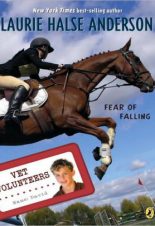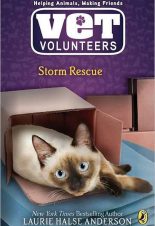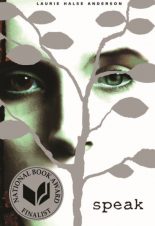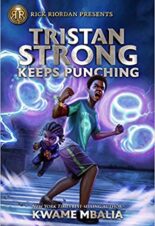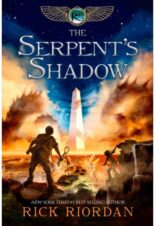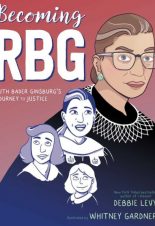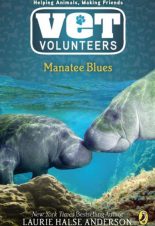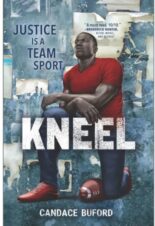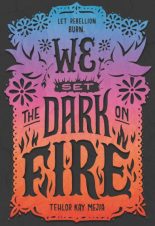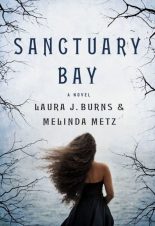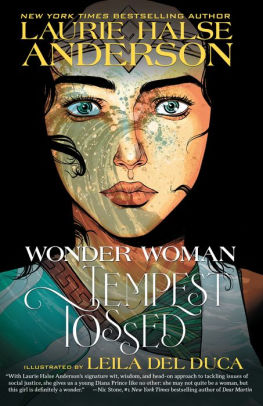
Buy This Book
“When the rules are wrong, you have to break them. Especially when little ones are in trouble,” Diana. –Wonder Woman: Tempest Tossed
Wonder Woman: Tempest Tossed
by Laurie Halse Anderson
AR Test, Good for Reluctant Readers, Strong Female
14+
Score
4.2
208
Wonder Woman: Tempest Tossed follows Diana of Themyscira (AKA Wonder Woman), a sixteen-year-old who leaves her home island and learns about the modern world. Diana is the only child on her island, which is full of powerful, immortal Amazon women. With no one to share in her experiences, Diana has often felt lonely and confused while going through puberty. Even so, she lives an enjoyable life. The Amazons are happy and ensure that everyone is well-fed and cared for.
When boats full of refugees wash up on the shores of Themyscira, the Amazon women chase them off in order to protect their border. Diana, though, is determined to see the refugees to safety and accompanies them off the island and into the mortal world.
They land in a refugee camp in the Middle East, where Diana sees war, poverty, sickness, and cruelty. Her ability to understand and translate every human language soon catches the attention of UN ambassadors, who give her a visa to the United States. Diana soon finds herself living with Polish immigrant Henke and Henke’s granddaughter Raissa in the Queens borough of New York City.
Diana becomes passionate about helping the children of her new community. As a headstrong and compassionate warrior, Diana finds herself at odds with the forces of injustice and hatred. She must stand up for the truth and justice that she was raised to believe in. While fighting for the rights of immigrants, she finds a new family and home in the mortal world.
With skillful writing and drawing, Laurie Halse Anderson and Leila Del Luca have brought a new and original story to the Wonder Woman character. The full-color illustrations are detailed and visually engaging, with a diverse array of panel layouts for effective visual storytelling. While comics fans will recognize the characters of Diana and the Amazons, this story can be read independently of any other Wonder Woman comic book. Diana’s position as an idealistic fish-out-of-water lets readers gain a fresh, heartbreaking perspective on the injustices of war, poverty, homelessness, and even human trafficking. At the same time, Diana discovers the joys of caring for children, connecting with other teenagers, and partaking in modern culture. Diana encounters food trucks, regional slang, polka dancing, subway transit, and parkour with wide-eyed enthusiasm readers will find endearing.
The story culminates in an exciting fight where Diana uses her superhuman strength to rescue children from a rich and powerful villain. It’s satisfying to see a real-life “bad guy” vanquished so quickly and easily by Diana. Even so, the story will leave readers with the knowledge that change is not always easy, and that the human rights abuses (like poverty and human trafficking) portrayed in this piece of fiction have real-life parallels which are not so easily brought down. The story is political in nature, with a stance that mature readers will recognize as being pro-immigration. The message is optimistic and idealistic, but still emotionally compelling. It makes for an uplifting story that will interest not only superhero fans but also for casual readers who want to read about social justice in the modern world.
Sexual Content
- At the refugee camp, a woman suggests Diana cover up her Amazon armor (which is sleeveless) with a sweatshirt because “the guards can be dangerous,” implying that she might draw unwanted attention.
- Diana and Raissa are harassed by men on the street, who whistle and say, “Gimme that sweet candy, baby!” When Diana realizes their intentions, she slams them up against the wall saying, “My aunts would have killed those jerks.”
- Diana is horrified when she learns about the concept of human trafficking, and even more horrified to hear that children who are kidnapped or trafficked are often “forced to have sex.”
- Raissa gets into an argument with a rich man who is gentrifying her neighborhood. He taunts her by saying, “You’re hot. I like having pretty girls in my office. Want to be my personal intern?”
Violence
- An Amazon kicks a refugee who has landed on the shores of Themyscira, saying, “Quiet! You’ve broken our barrier.” The other Amazons scold her and say she has gone too far.
- A woman tells Diana that before she fled Poland, “Thousands were beaten and jailed for protesting. Including me.”
- During an encounter with bureaucrats who want to stop her from feeding hungry children, Diana is so angry that she throws a picnic table and breaks it. She is arrested.
- A fight breaks out when Diana rescues a group of children from human traffickers. The fight lasts four pages. Several of the kidnappers have guns, but nobody is seriously hurt.
Drugs and Alcohol
- When mortals land on the shores of Themyscira, the Amazons give them a “forgetting tea” before sending them away.
- Diana rescues a group of children who have been kidnapped by human traffickers. The children have been drugged to keep them asleep.
Language
- Profanity is used very infrequently. Language includes bitch, badass, hell, ass, and shitty.
Supernatural
- As a child of the Amazons, Diana has superhuman strength and abilities. She tries not to draw attention to these. When Raissa says she saw Diana send two vans flying into the air during a fight, Diana says, “You hit your head. You must have been hallucinating.”
Spiritual Content
- Diana recalls how the “Five Mothers”—the Greek goddesses Athena, Aphrodite, Demeter, Artemis, and Hestia—created the Amazons. She also recalls how the Five Mothers granted the Amazon queen a child, which was how Diana was created.
- Diana makes offerings of food at the Temple of the Five Mothers, and says a prayer to each. For example, to Athena, she says, “Athena, grant me your wisdom. Help me be a good Amazon.”
- Diana feels that “the gods are warning” her with a vague ominous feeling. She says, “The gods are whispering, but I can’t hear what they’re saying.”
- Diana says that the Statue of Liberty “looks like Hestia, the goddess of family and the home.”
by Caroline Galdi
“When the rules are wrong, you have to break them. Especially when little ones are in trouble,” Diana. –Wonder Woman: Tempest Tossed
Latest Reviews
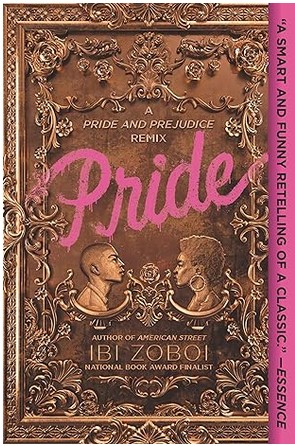
Pride: A Pride & Prejudice Remix
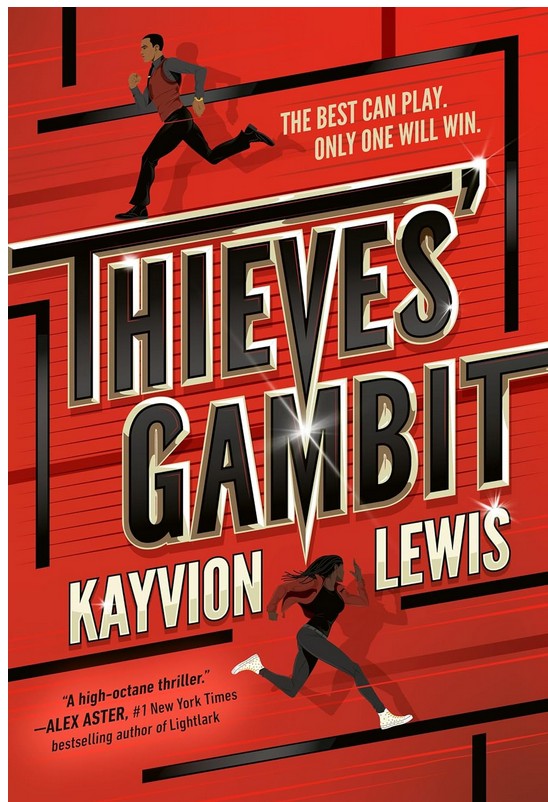
Thieves’ Gambit #1
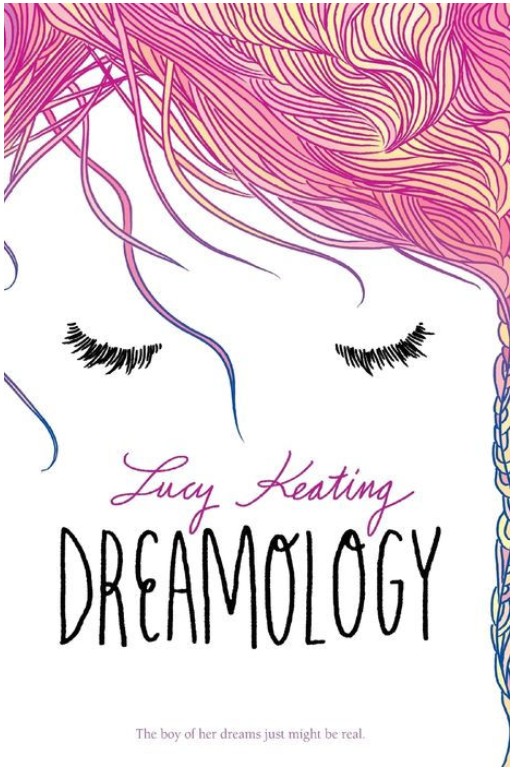
Dreamology
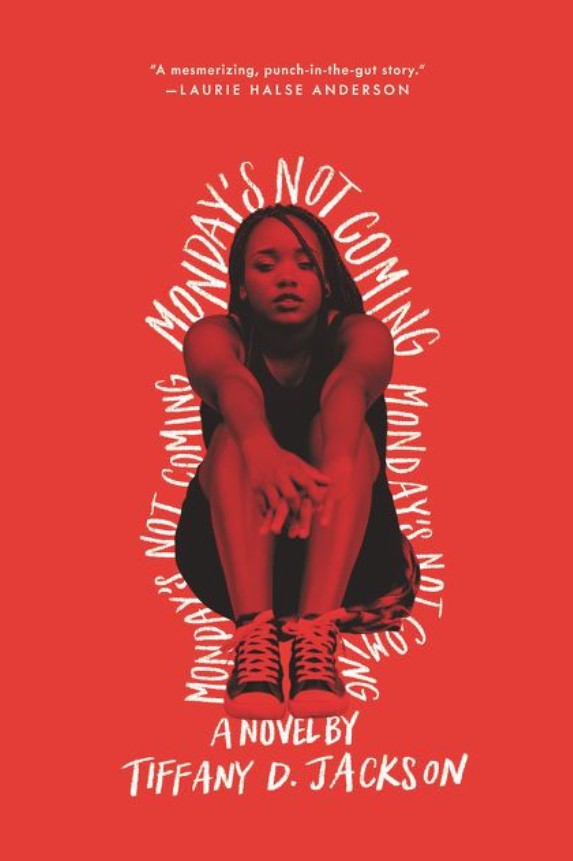
Monday’s Not Coming
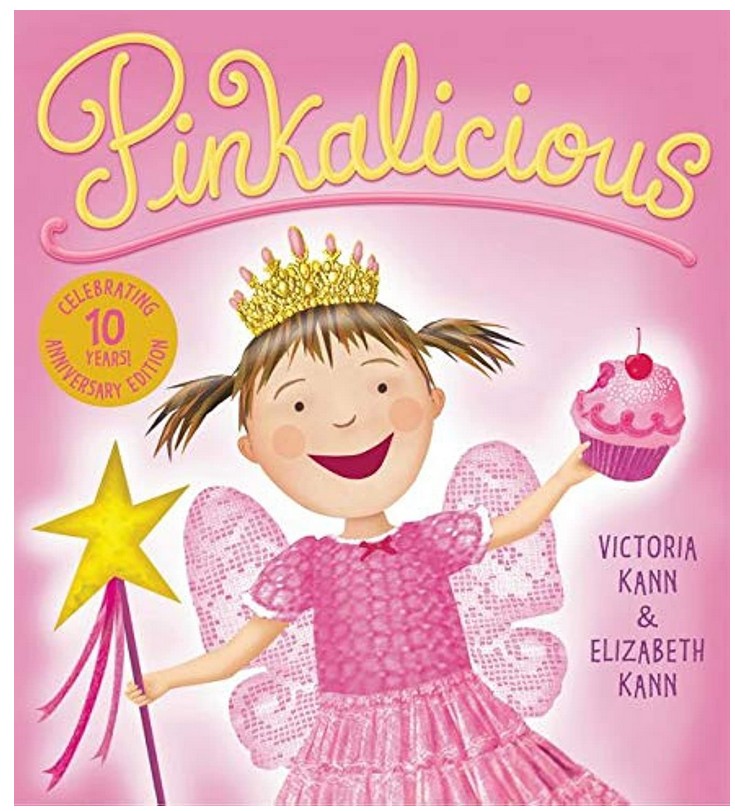
Pinkalicious

Driven

Goodbye Days

Blood of Troy

Will’s Race for Home

